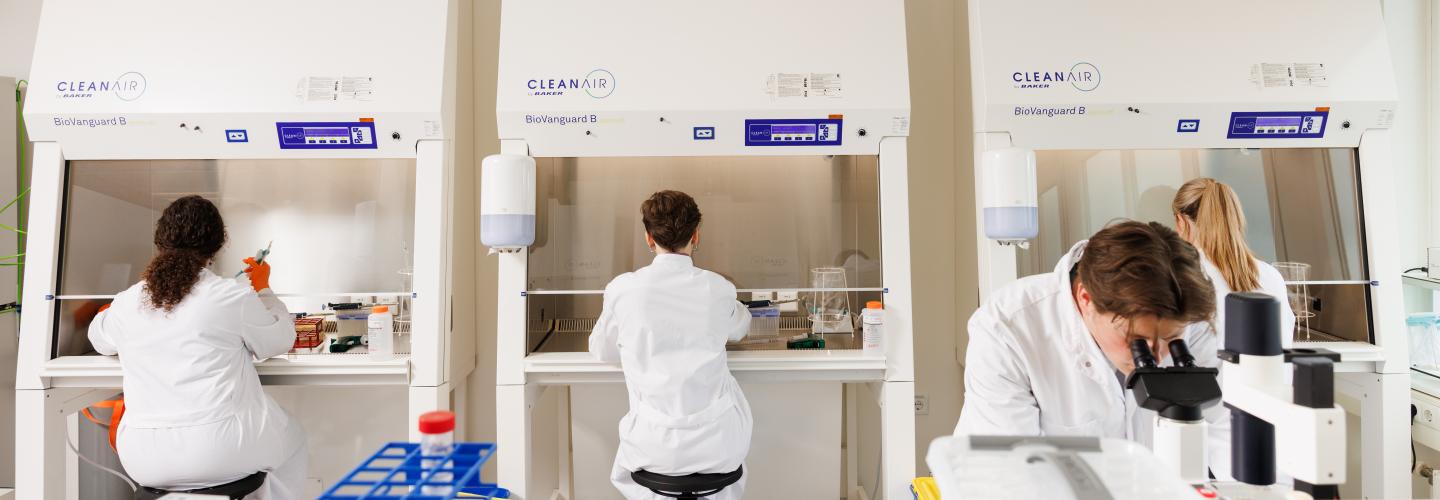Your future
The flexibility of the programme insures that you can pursue many different career paths after you’ve graduated. Your knowledge of the human body and the physiological and molecular processes that take place ensures that you'll be very popular amongst employers. After all, you are not only an expert in the field that you specialised in, you have also had a lot of practical training in things such as communicating, writing, presenting and collaborating with people from other disciplines. This makes you an ideal candidate for many different positions, both in the Netherlands and abroad.
Job market
The job market for biomedical scientists is ‘booming’. The demand for people that can connect cells and diseases with health and performance is steadily growing, both in the Netherlands and abroad.
Connecting master's programmes
If you, like many other students, decide to pursue a master’s degree, you'll have even more options available to you.
Connecting master's programmes at FHML
Maastricht University’s Faculty of Health, Medicine and Life Sciences offers eight master’s programmes that connect to the bachelor’s in Biomedical Sciences.
English master's programmes
- Biomedical Sciences
- Epidemiology
- Governance and Leadership in European Public Health
- Global Health
- Health Food Innovation Management
- Human Movement Sciences
- Systems Biology
Dutch master's programmes
Career paths for biomedical scientists
The knowledge you'll gain in this programme can be used to improve the health and wellbeing of people in many different ways. You could end up working in:
Research
At universities and hospitals, biomedical scientists conduct investigations into the causes and possible preventions of different diseases, and the processes that take place in our bodies. Others go on to help pharmaceutical companies and biotech firms develop new drugs. You could, for example, end up working on the development of new treatments for cancer patients.
Policy
A diploma in Biomedical Sciences will also allow you to pursue a career in government, as a policy maker at the Department of Health, for example. Graduates often end up working at government departments where they advise on topics such as the introduction of new food and nutrition legislation, or new initiatives to promote an active and healthy lifestyle.
Education
If you take the education track in Biomedical Sciences, you can become a biology teacher at a secondary school, or work as an instructor in tertiary and higher education.
Alumni stories
Eleonora Broggi - What happens in the brain of someone with a psychiatric disorder
Eleonora Broggi is investigating brain patterns in people with autism spectrum disorder at King’s College London. Read how Eleonora uses Biomedical Sciences for her career in neuroscience and drug development.

Lobke Meels - turning research into marketable solutions
Lobke Meels is an inspiring example of pursuing a career outside of the lab. She combined her bachelor’s programme Biomedical Sciences with a master’s in health economics and management and now works on turning research into marketable medical products.

